Hillary Clinton endures marathon grilling on Benghazi attack
- Published
Clinton said she "took responsibility" after the 2012 attack in Benghazi
Hillary Clinton has endured an 11-hour hearing before a Congress committee over the deadly attack on the US consulate in Benghazi, Libya, in 2012.
The former secretary of state said she took responsibility and introduced reforms after the attack that killed four Americans, including the US envoy.
She deflected criticism that she did not do enough to protect the mission.
Her Democratic party says the Republican-led panel is a witch-hunt trying to harm her presidential bid.
Despite the committee sitting in four consecutive hours-long sessions on Thursday, the hearing yielded little new information.
Mrs Clinton remained composed during the highly-anticipated testimony, amid several heated exchanges between Republicans and her Democrat allies.
'Security above partisanship'
In her opening statement, she said she had asked Chris Stevens, one of the four killed, to go to Libya as US envoy.
"After the attacks I stood next to President Obama as Marines carried his casket," she said.
"I took responsibility, and as part of that before I left office I launched reforms to better protect our people in the field and help reduce the chance of another tragedy happening in the future."
Five key questions on the latest Benghazi hearing
Mrs Clinton said her appearance was her way of honouring the lives lost, and she called on those present to put national security above partisan politics.
Democratic Representative Elijah Cummings, seated next to the chairman, said Republicans were wasting taxpayer money in an effort to derail Mrs Clinton's presidential campaign.
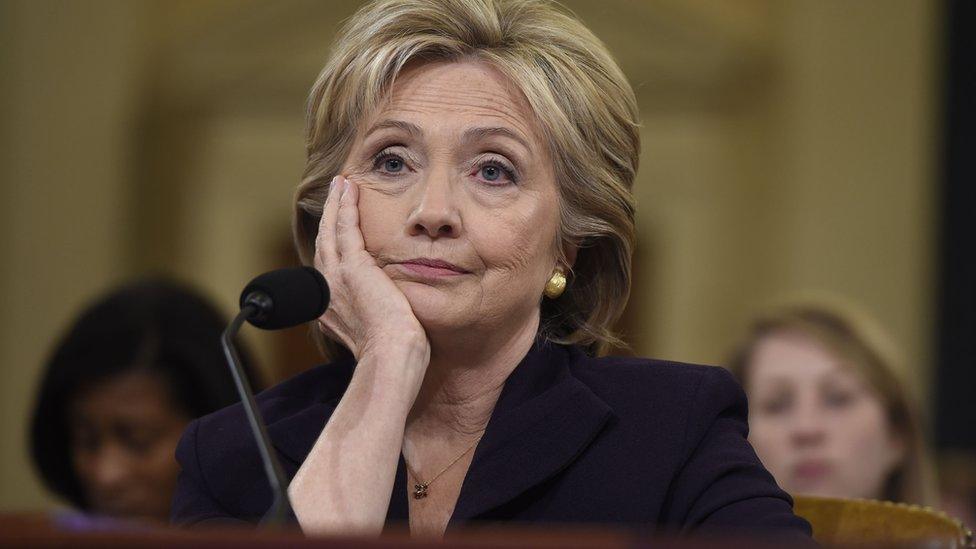
The questioning lasted about 11 hours
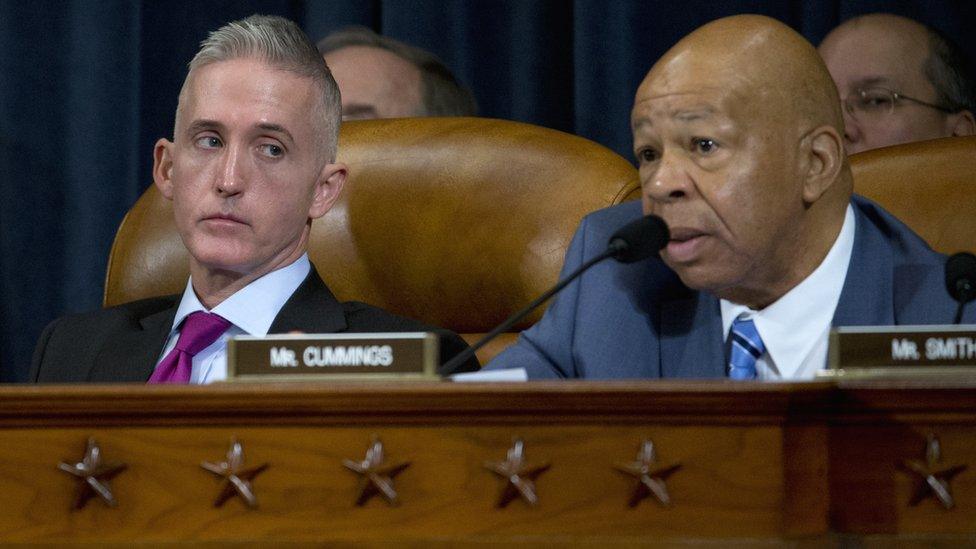
Republican Trey Gowdy (L) and Democrat Elijah Cummings questioned Clinton - but in very different ways
But Mr Gowdy denied his committee was going after Mrs Clinton.
Instead, he said, it was looking for the truth behind the diplomatic compound's unsuccessful requests for more security and personnel in the build up to the attacks.

At the hearing - Barbara Plett Usher, BBC News
Mrs Clinton is defending her record before, during and after the Benghazi attacks largely as she has before - taking responsibility for the mistakes, talking about lessons learned, and owning her policy positions.
The new element is her email record, which she has downplayed. She told lawmakers that most of her work on Libya and Benghazi wasn't done by email, mentioning an occasion when an intelligence report had to be carried to her by briefcase and read on the spot.
The tone has been largely measured, and the testiest exchange didn't actually involve Mrs Clinton.
Committee chairman Trey Gowdy has latched onto the role of a Clinton friend, Sidney Blumenthal, who sent her numerous intelligence reports on Libya by email.
He's suggesting Mr Blumenthal unduly influenced her Libya policy and had greater access to her than her Benghazi ambassador, Chris Stevens, who was killed.
Democratic committee members erupted in denial and demanded Mr Blumenthal's testimony transcripts be released, while Mrs Clinton looked on detached and bemused

There have already been seven congressional investigations into the attack, by suspected Islamist militants, on the US compound in the Libyan city of Benghazi on 11 September 2012.
The raid led to the deaths of ambassador Chris Stevens and three other US embassy staff.
Mrs Clinton said Mr Stevens was well aware of the risks of his job but withdrawing American presence from Libya would have been a mistake, she said.
"To retreat from the world is not an option. America cannot shrink from our ability to lead."
When the US pulls out of places, extremists gain a foothold, she added, although she did admit that security requests made by the Benghazi consulate were not met.
An independent review board found deficiencies within the State Department that the Obama administration has tried to fix, said the former first lady.
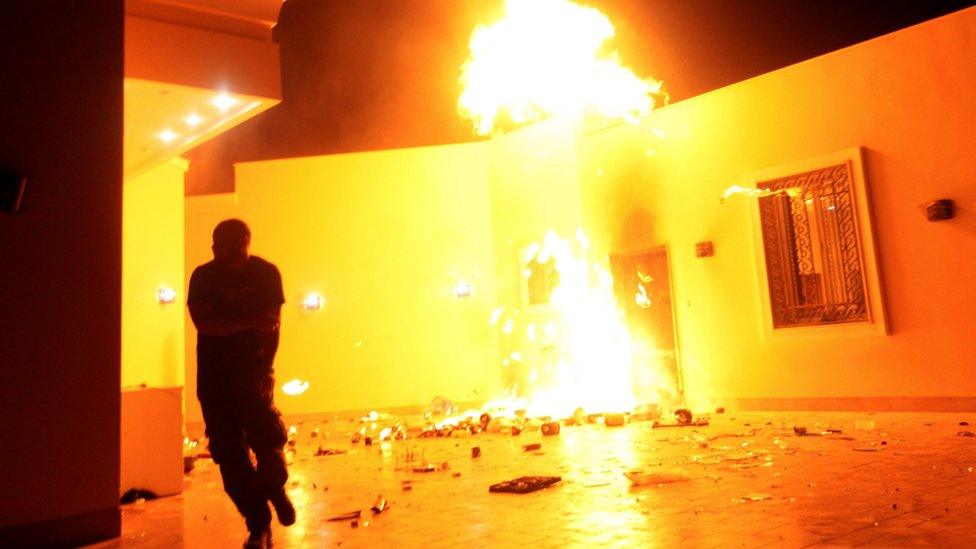
The US building in Benghazi on fire on 11 September 2012
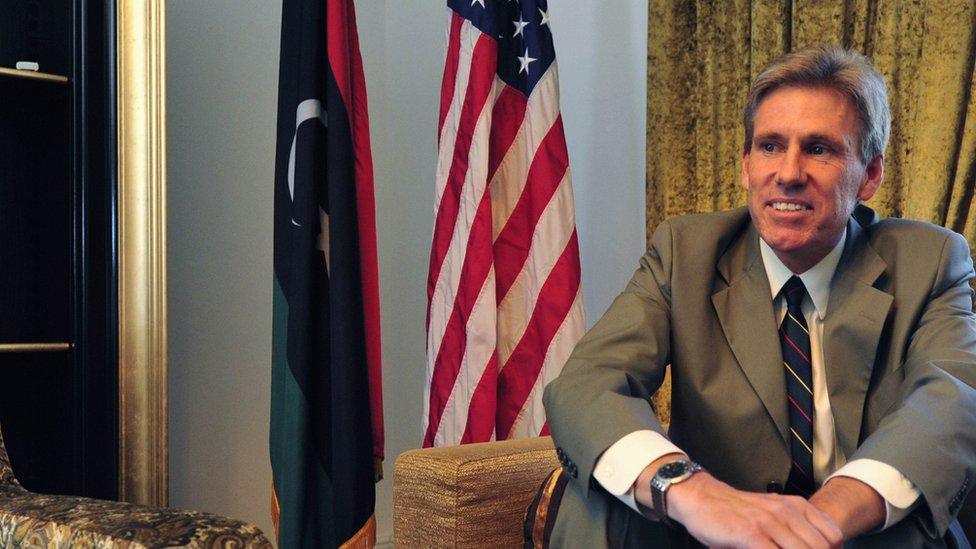
Ambassador Christopher Stevens was killed
Observers say this was a key moment for Mrs Clinton, who solidified her position as the Democrats' frontrunner for presidential candidate after her potential rival, Vice-President Joe Biden, ruled himself out of the race on Wednesday.
The Republicans on the committee were also under pressure to prove they had good reason to bring Mrs Clinton before them, and were not just using it as an excuse to undermine her presidential candidacy.
One thing that was unearthed by the committee's work was the former secretary of state's use of a private email server, which has dogged her 2016 campaign ever since.

Key questions
What are the possible consequences for Clinton?
The committee does not have the power to punish but depending on the conclusions there could be political consequences for Hillary Clinton, which might affect her presidential campaign
What did Clinton know about security requests?
She has said in previous testimony that requests for additional security didn't reach her level. But she has taken responsibility for the failure. And the State Department review laid out steps to improve security at diplomatic missions.
What did the other Congressional committees find?
This is the eighth congressional investigation. Previous committees criticised Mrs Clinton and the Obama administration on a number of points, especially the poor security at the Benghazi mission. And the intelligence was flawed.
What is there left to discover?
The committee has suggested there will be new evidence of how poorly the state department responded to security requests for the Benghazi mission, and new evidence on how the military responded to the attack.

- Published21 October 2015
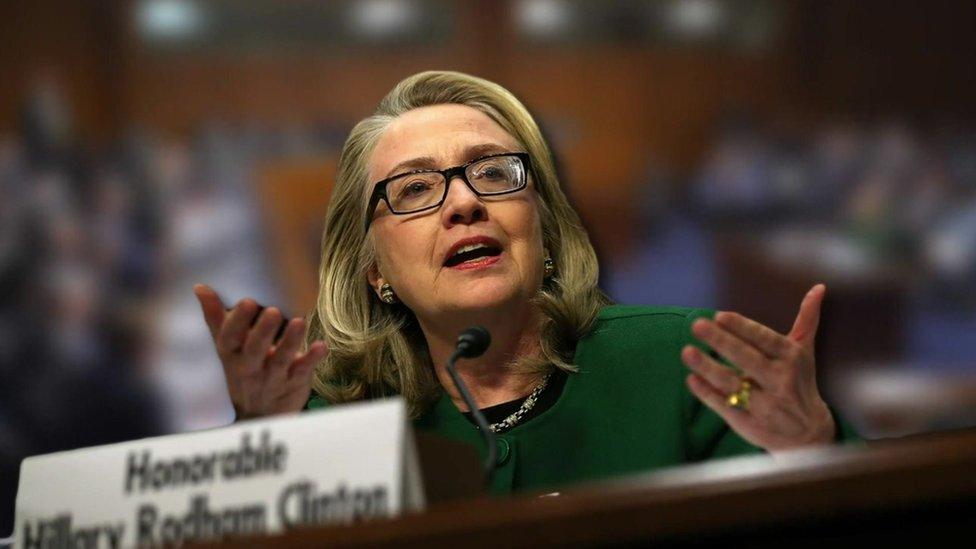
- Published16 November 2012
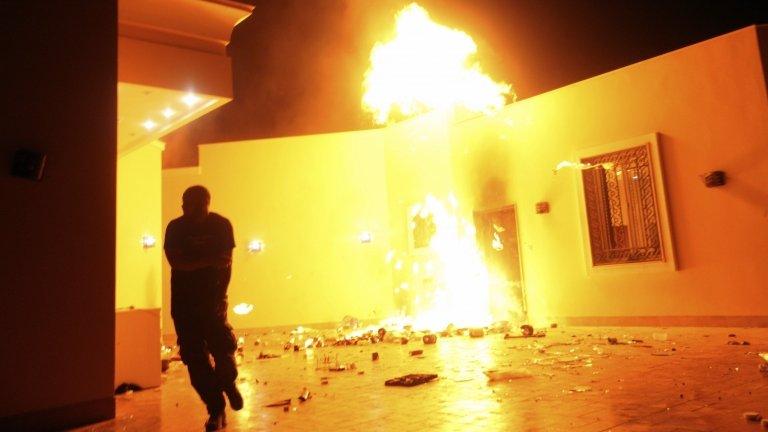
- Published6 November 2016